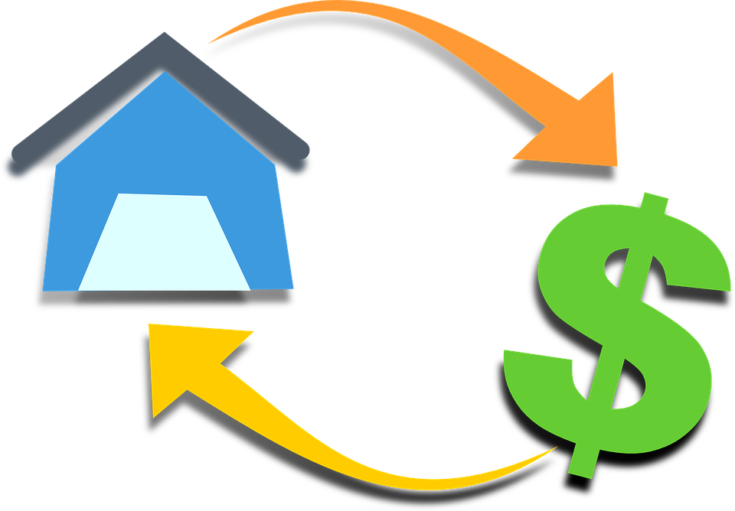Disclosure: This post may contain affiliate links, meaning we get a commission if you decide to make a purchase through our links, at no cost to you. Please read our disclosure for more info.
Last Updated on May 16, 2019 by Work In My Pajamas
Reverse mortgages (aka Home Equity Conversion Mortgage or HECM) may be the most misunderstood mortgage in the market.

For years there have been misconceptions about this type of mortgage and how it affects the home, the homeowner and their heirs. We will bust 3 of the most common myths when it comes to a Reverse Mortgage.
In This Post:
1) The Bank Will Take My Home
This myth alone has struck fear in many senior homeowner’s hearts. The thought of the lender or the government taking your home can be frightening. Thankfully, that is not what happens with a reverse mortgage. In fact, the HECM loan was designed with the intent to keep seniors in their homes for the rest of their lives. The homeowner retains the title to the home and the lender simply puts a lien on the home to ensure the loan is paid off. This happens when the homeowner(s) passes away or if they decide to permanently move out or sell the house.
2) I Will Still Have To Pay My Monthly Mortgage Payment
Another commonly misunderstood benefit of a reverse mortgage is the fact that the homeowner never has to pay another monthly mortgage payment as long as they live in the home. For many seniors, this is the most appealing part of a HECM loan. Whether they need the funds to live on or to pay medical bills, this monthly savings is a huge benefit for most seniors. Keep in mind you still need to pay your home insurance and taxes. Reputable lenders like Sun West Mortgage will educate borrowers on exactly what payments they are responsible for after a reverse mortgage.
3) My Children or My Heirs Won’t Inherit My Home
This is closely related to myth number one. The fear that the homeowner cannot leave their home to loved ones can be a big deterrent, but it is a myth. Even with a reverse mortgage, you can leave your home to your heirs. The heirs can then choose to pay off the reverse mortgage and keep the home or they can sell the home to pay off the loan. The good news here is that if there is still equity left over from the sale after the reverse mortgage is paid off it is your heir’s money to keep. Additionally, if for some reason the home is upside down when your heirs sell it, they are not responsible for any deficit. This is called a non-recourse loan.
These are just three of the most common myths associated with a reverse mortgage. There are more misconceptions out there, so the best thing you can do is find a mortgage lender who can educate you and give you the facts regarding a HECM loan. Choosing to get a reverse mortgage may be something that makes your retirement years much more enjoyable.


